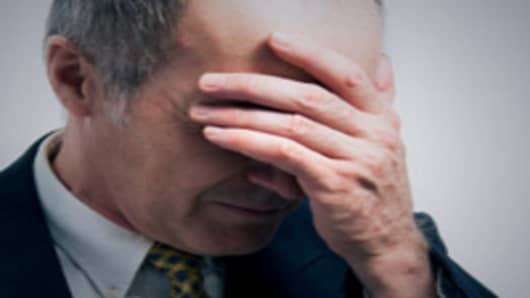The protesters camping near the London Stock Exchange aren't the only cross British people out there.
The UK's Misery Index hit its highest point for nearly two decades Tuesday after inflation shot up by 5.2 percent in September, much more than expected and its highest rise in three years.
It is now at its highest since October 1992, just after Black Wednesday, when the UK pulled the pound out of the European Exchange Rate Mechanism (ERM) – and George Soros famously made much of his fortune selling against the stricken sterling.
The UK's relationship with Europe, its biggest trading partner, is again causing angst – this time around, because the euro zone debt crisis looms.
Despite what its name might suggest, the Misery Index doesn't involve taking the emotional temperature of the British people on a scale of Eeyore to Tigger. It's comprised of unemployment figures and inflation statistics.
When unemployment is high and the cost of living is rising more quickly than wages, the recipe for large-scale misery is there, and consumers will cut back on their spending even more.
Before sinking too deeply into depression, UK consumers should consider that at least they're not as badly off as the US, where the Misery Index is at its highest since 1983.
The generation who lived through 1970s Britain, when mass unemployment and inflation above 25 percent sent the Index soaring above 30, more than double today's levels, were also distinctly more miserable.
Plus, there is some light at the end of the tunnel predicted by economists, with inflation expected to fall in coming months as falling oil and other raw material prices trickle through to the consumer.
"If inflation (as measured by RPI) falls from its current rate of 5.6 percent in coming months, as is widely expected, this should alleviate some of the misery-factor," Chris Williamson, chief economist at Markit, wrote in a statement.
"Consumer spending could well start to pick up again as a consequence, and at the very least act as less of a drag on the economic recovery in coming months than the 0.8 percent fall in spending seen in the second quarter."



